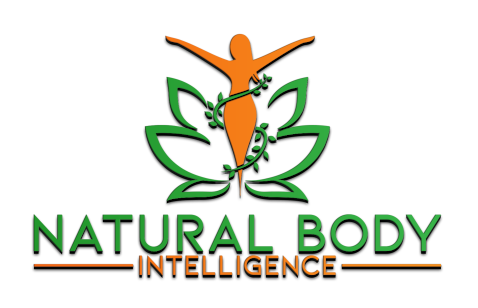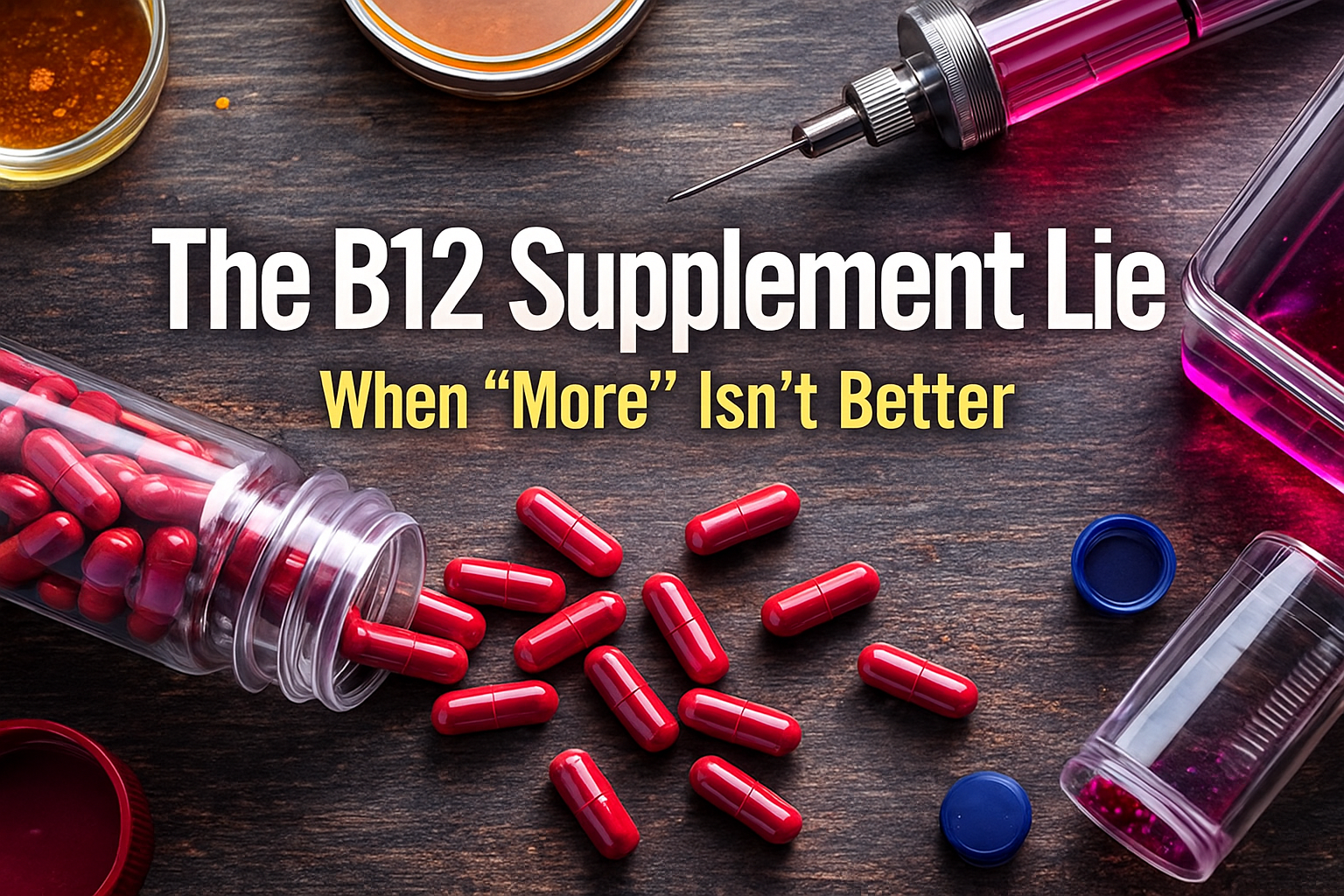The message is everywhere — take a high-dose Vitamin B₁₂ supplement and you’ll boost your energy, protect your brain, and shore up your health. But under the surface of this tempting promise lies a far darker story: synthetic B12 supplements may not only be unnecessary for most people, they can also introduce unwanted stress into the body’s terrain.
Synthetic Analogues: A Hidden Problem
In the realm of nutritional supplements we often assume that what’s labelled a “vitamin” is identical to what nature supplies. That assumption is flawed. B12 supplements are almost always made from bacterial fermentation and then chemically stabilised into forms such as cyanocobalamin or hydroxocobalamin. The human body is designed to assimilate B12 via a complete digestive chain, not by bombing it with isolated, high-potency forms.
While natural-food sources of B12 come embedded in a matrix of nutrients and biological carriers, synthetic B12 is stripped of context. Some forms release by-products (for example the cyano group in cyanocobalamin) when converted in the body. According to the McGill University Office for Science and Society, the presence of cyanide in B12 supplements is not a major risk — yet the very existence of such by-products shows that these are not purely natural molecules. McGill University
Toxicity Is Rare, But Not Non-existent
When critics of supplementation say “toxic,” the conventional line is: “Well, B12 is water-soluble, so excess is simply excreted.” That’s broadly true — official toxicology reports and regulatory bodies such as the European Food Safety Authority (EFSA) say that B12 has low toxicity and no established upper dose limit. EFSA Online Library+2NCBI+2
However, there are documented cases of adverse effects from extremely high doses of synthetic B12. In one 2020 case report, a young woman given multiple milligrams daily of cyanocobalamin experienced acne, palpitations, anxiety, insomnia, and facial flushing — symptoms that resolved when supplementation stopped. PubMed Other studies find elevated B12 in the bloodstream may correlate with higher mortality or certain cancers, particularly in older adults — leaving open the question whether “excess” B12 is innocent. ScienceDirect+1
Why the “Deficiency” Narrative Sidesteps the Real Issue
In Natural Hygiene our focus is on the body’s terrain — the digestive, circulatory, lymphatic, respiratory systems — rather than isolated nutrients. Most alleged B12 “deficiencies” are better understood not as a simple lack of B12, but as a failure of assimilation: poor digestion, gut inflammation, low stomach acid, compromised liver/bile systems, or an imbalance in the microbiome. If your digestive terrain is dysfunctional, pumping B12 pills into the system won’t solve the root cause — and may even burden your detox systems.
By contrast, addressing lifestyle: whole-food sources, slow digestion, rest, hydration, movement and clean terrain restore the body’s ability to draw from the natural B12 in foods. This is far more coherent with the way nature designed nutrient delivery.
The Supplement Industry’s Win
A high-dose B12 supplement is cheap to manufacture, easy to market as “energy boosting,” and sits in the daily vitamin ritual for millions. But for the user, what looks like nourishment may in fact be distraction. Unless you have a medically confirmed deficiency (and in a few cases that is valid), that B12 tablet is not compensating for your body’s internal dysfunction — it’s masking it.
From Masking to Mastery — What to Do Instead
- Prioritise whole-food sources. Meat, fish, eggs, dairy (or in a plant-based diet choose high-quality fermented foods or carefully supervised options).
- Improve your digestive terrain. Gentle eating, proper chewing, reduction of processed foods, support for gut health, avoidance of chronic stress.
- Use supplements only if needed and guided. If you suspect true B12 deficiency (rare when digestion is healthy), use minimal amounts under supervision.
- Reduce the load on your detox systems. High synthetic doses may require the body to process extra by-products. Let the body operate its own rhythm.
- Seek root causes not patches. When fatigue, neurological symptoms or anaemia appear, ask why the digestive-metabolic system is out of balance — rather than defaulting to “take more B12.”
Final Word
The promise that more is better when it comes to B12 supplements is a myth. The human body is a whole, integrated system. Synthetic high-dose B12 may deliver a quick “boost,” but at the cost of ignoring the body’s natural rhythm and adding to its burden. True nourishment comes from food, rest, clean terrain, and the compensatory capacity of the body that is designed to absorb nutrients — naturally. When you restore digestion, metabolic function and internal balance, you remove the need for synthetic patches. And in doing so you step into healing rather than simply treating symptoms.

